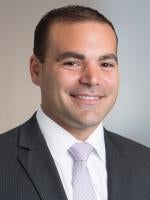As anticipated, today the National Labor Relations Board published a Notice of Proposed Rulemaking (“NPRM”) proposing a regulation which would establish that students at private colleges and universities who perform any services related to their studies for compensation, including teaching and research, are not “employees” within the meaning of Section 2(3) of the National Labor Relations Act. The proposed rule would bring certainty to the student employee-status issue, which the Board oscillated on three times in sixteen years. Per the Board, the proposed rule would promote the purposes and policies of the Act “which contemplates jurisdiction over economic relationships, not those that are primarily educational in nature.”
The Road to Rulemaking
Though Section 2(3) of the Act defines the meaning of “employee” in broad terms, the Act does not explicitly address whether students performing teaching and research services at private universities in exchange for stipends are included within that definition. Thus, over the course of 45 years, the Board has been asked to visit and re-visit the scope of the definition of “employee” in order to determine whether or not student teaching and research assistants fall within it.
Indeed, since the 1970s, the Board has issued five seminal decisions directly addressing the issue, beginning with its decision in Adelphi University, 195 NLRB 639, 640 (1972). In Adelphi, the Board found graduate students serving as teaching and research assistants were “primarily students,” not “employees.” The Board subsequently overruled itself three times on this issue; first in New York University, 332 NLRB 1205 (2000) (graduate teaching and research assistants were “employees”), next in Brown University, 342 NLRB 483 (2004) (the relationship between student assistants and their universities was “primarily educational” rather than economic), and most recently in Columbia University, 364 NLRB No. 90 (2016) (returning to NYU, finding that student teaching and research assistants were statutory “employees”).
In this atmosphere of unpredictability, the Board turned to rulemaking in order to provide institutions of higher education and students alike with certainty as to whether or not student teaching and research assistants are “employees” within the meaning of the Act.
The Proposed Rule
Importantly, the proposed rule makes clear that both graduate and undergraduate students performing services in connection with their studies would be excluded from the Act’s coverage. In crafting this broad rule, the Board relied on the majority decision in Brown that such students are “primarily students” with a “primarily educational” relationship with their universities, not an economic one. Further, the Board’s proposed rule rejected NYU and Columbia on the basis that Brown and the proposed rule “reflect[] an understanding of Section 2(3) that is more consistent with the overall purposes of the Act.”
In the NPRM, the Board articulated several premises in support of its proposed rule which underscored the educational aspects of students teaching and research assistantships. In particular, the Board highlighted the fact that teaching and research services performed by students are “vital” to their education, and that such students spend the majority of their time focused on coursework and studies rather than their assistantship duties. Moreover, the Board found that funding received by student assistants was more accurately characterized as “financial aid” rather than “consideration for work.” Finally, the Board noted that the faculty-student relationship is ill-suited to collective bargaining, as the relationship is centered on the advancement of students’ education, rather than the interests of a traditional employer-employee relationship.
Next Steps
The comment period runs for 60 days from the date the proposed rule is published in the Federal Register, which is scheduled to occur on Monday September 23. The NLRB has a history of extending comment periods, so the time to comment may be extended past 60 days. Next, the NLRB will review all of the submitted comments and determine whether its proposed rule should be modified. Once the Board has completed this process, which we suspect will take several months, the Board will issue a Final Rule and provide a date for when the effective date of the Final Rule. Based on this timeline, we anticipate a Final Rule to be out by Spring 2020.





 />i
/>i
